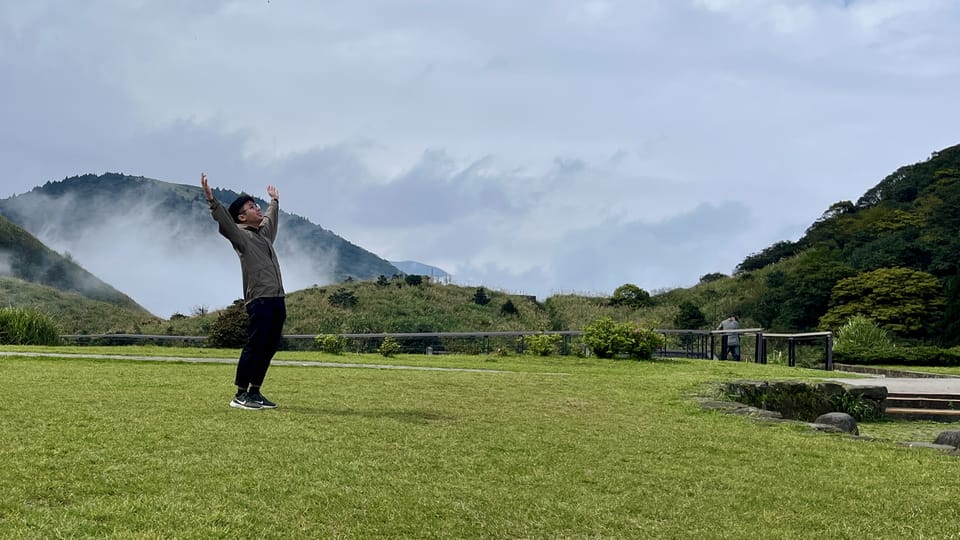A private story about growth

I am the first generation in my immediate branch of the family to speak English as a primary language. The first generation to have an opportunity to pursue and obtain a degree. And more importantly, the first generation where our ambitions are not inhibited by circumstances, but by our ability and vision. I am not the generation of migrants from China in search of a better life, not the generation that had to endure the horrific Japanese occupation, not a generation of parents to baby boomers, and most likely (and hopefully) not a caretaker sandwich generation.
Ever since I was a little boy, my family has been rather poor, although my parents never made me feel that way, my childhood was always full and happy. But occasionally, reality steeps in. I distinctly remember multiple occasions where I was asked to read a chapter in Chinese classes (as we all do). And since my textbooks were always a few editions outdated, I often read from chapters that no longer exist, generating awkward glances from my peers and teachers. That did not make me feel inept. That's just how things worked for me, all my 14 years of life, and I was content. My parents did a fantastic job raising me and I will never have any complaints about that.
Eventually, reality caught up with me. In my first "real" job at Singapore Exchange, many of my colleagues struggled to understand my accent and even struggled to pronounce my name. I had to come up with a truncated form of my name, "Xing" that I am still using in Staizen today. Things that always came naturally to many of my peers - networking, the concept of growth, career management, personal finance - these are things that I have to navigate largely on my own at 19 years old, and I am still learning to this day.
And how did I overcome these adversities? I worked harder than my peers. I put in the hours and tackled problems one by one until they were crushed. At Singapore Exchange, I put in the extra hours to implement solutions that would improve tooling or generate value for the Design System team. I read books and articles to improve my grammar structure and expand my vocabulary.
During my 1 year stint as a Company Medic during National Service, I spent extra effort to coordinate with various stakeholders. Ensuring that they always have the updated information about the medic team. I worked with my Battalion Medic to ensure large-scale trainings and events ran smoothly. With my Company Commander, Sergeant Major and various elements to ensure medical coverage availability during trainings, always with adequate buffers. This was not common among NSFs (conscripts), and especially not in the history of my battalion's medical leaders. This behavior was rewarded by the Unit Best Soldier award, and I continued to receive various commendations as a reservist. Thinking back, this commitment to my work probably stemmed from the reflections I've had at SGX. I was severely behind my peers, and I needed to catch up by putting in the effort and working smart to prove myself in leadership roles.
During my university days, COVID-19 happened, closely following the death of a family member. Now I know the formula. I worked harder and smarter than any of my peers. I started working at Staizen, putting in hours after classes to work on various technologies and generating value for our clients. I distinctly remember one night when we had a delivery for a client, so the team was working late into the night. But I had finals the next day. I was on a video call on the left side of my laptop, listening for my name in case my team needed me while the right side was a past-year paper I was practising for the finals the next day.
This turned out to have unexpected advantages. Working as a Mid-level developer, I know how to run a successful project. I knew how to manage timelines, stakeholders and a development team. I threw myself into many leadership roles in my university projects, bringing enterprise-level approaches to small computer science team projects. The meetings I ran were organized, succinct and purposeful. Everyone left knowing their scope of work. The technical architectures I came up were simple but fitted well for the requirements of the given assignments. I even did a live coding session during a presentation that shocked many peers. Not many people I met in university had both the confidence and aptitude (with a sprinkle of arrogance) to do live coding just to prove that their architecture is extensible.
I am coming out to share my story now for a simple reason. This is a quintessential Singapore story. We are a pragmatic people. Our generation, more than any that came before us, is better equipped to overcome adversity and come out stronger, more mature, and wiser. As I am writing this, I just got laid off, which got me into a reflective mood, and thus this blog post. But this a universal story. Work hard, work smart, have vision, and we can do anything.
Only Grammarly was used to correct grammatical errors, otherwise no AI was used in the writing of this article.